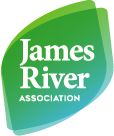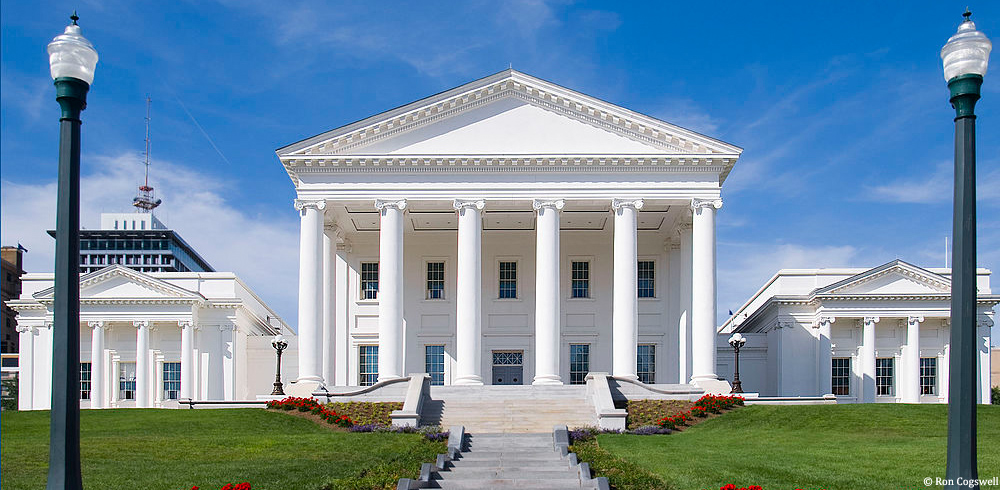It’s time to catch our breath, catch a nap, and catch you up on where things stand at Virginia’s state capital! More than 2,800 bills were filed at the General Assembly this year, and more than 1,450 are still alive and kicking, ready to be debated by the other legislative chamber on their way to the Governor’s desk. When the 2020 Session started, we shared the James River Association’s legislative agenda, detailing the major topics JRA’s Advocacy Team would be working on in Richmond. Let’s take a look at where we are so far.
JRA’s Policy Agenda
🗸 Cattle fencing is moving forward with brand new language and bipartisan support.
As part of our Chesapeake Bay Cleanup Plan, Virginia committed to pursuing legislation that would put our state on a firm path to fencing all cattle out of streams by 2026. House Bill 1422 and Senate Bill 704 set a deadline for cattle fencing and nutrient management plans on farmland within the Chesapeake Bay watershed. After hearing strong concerns from Virginia farmers about whether funding would be available to get the job done, Senator Hanger and Delegate Plum amended the bills, which have now received broad bipartisan support! Encourage your representatives to vote “Yes” on HB 1422 and SB 704 as they continue to move through the General Assembly.
🗸 Menhaden are on the move to sustainable, science-based management by the experts at Virginia’s Marine Resources Commission.
We secured strong bipartisan support for a compromise that will ensure Virginia manages its menhaden population in a more sustainable way, protecting our ecosystem and the local economies that rely on healthy fish stocks. House Bill 1448 and Senate Bill 791 will move menhaden management out from the politicians at our part-time General Assembly and over to the scientists at Virginia’s Marine Resources Commission. Tell your elected officials it’s time to pass HB 1448 and SB 791, and manage menhaden like the rest of Virginia’s saltwater fish species.
► Aboveground chemical storage tanks definitely need attention, but our bill needs fine-tuning.
This session, JRA took on a new issue: regulating aboveground storage tanks that hold hazardous substances. As you might imagine, a brand new regulatory program sparks a lot of questions! We heard from a number of stakeholders who own or use storage tanks to hold hazardous chemicals. The fast pace of Session (did I mention there were almost 3,000 bills?) meant that we couldn’t work out all of the concerns in time for our bill to survive crossover, but we’re already in the queue for next session so stay tuned!
What’s up with the Budget?
Members of the House and Senate appropriations committees just announced their suggested changes to the Governor’s 2021-2022 Budget Bill. As you may recall, Governor Northam proposed record-setting funding for Virginia’s natural resources. While the General Assembly has pared this funding back, we remain hopeful that clean water programs will get a much-needed boost in 2021. This funding is critical for Virginia to meet its Chesapeake Bay Cleanup goals in 2025 and to reach a Grade-A James River in 2026.
- Helping Farmers Protect Their Local Streams
JRA asked for increased funding for Virginia’s Agricultural Cost-Share Program to install targeted, cost-effective conservation practices on farmland. While the Governor originally proposed $90 million over 2 years, we know that Virginia needs $100 million each year to get the job done. House appropriators retained the Governor’s funding levels. But Senate appropriators have proposed more funding up front. We’ll be encouraging all legislators to support the Senate’s proposal: $76 million for agricultural conservation practices in Fiscal Year 2021.
- Tackling the Toughest Sector: Stormwater
While the Governor included $182 million for the Stormwater Local Assistance Fund to help localities invest in projects that treat stormwater and local flooding, both the House and Senate Committees included less in their reports. We’ll be asking all legislators to support the House Committee’s suggested amount: no less than $92 million.
- Upgrading Wastewater Plants on the James River
The Governor proposed $120 million for nutrient removal grants to help wastewater treatment plants install modern technology, a particularly important priority for plants within the James River watershed. We’ll ask legislators to support the Senate Committee’s suggested funding level: no less than $60 million.
- Wastewater Roadblocks
Unfortunately, the Senate included a troubling amendment that would block Virginia from requiring technology upgrades at wastewater treatment plants along the James River, which receives 76% of the nitrogen pollution released by Virginia’s permitted facilities. Virginia’s legislators should reject this budget language, which would stall progress on our Chesapeake Bay Cleanup Plan and prevent an open and inclusive regulatory process for wastewater treatment upgrades.

